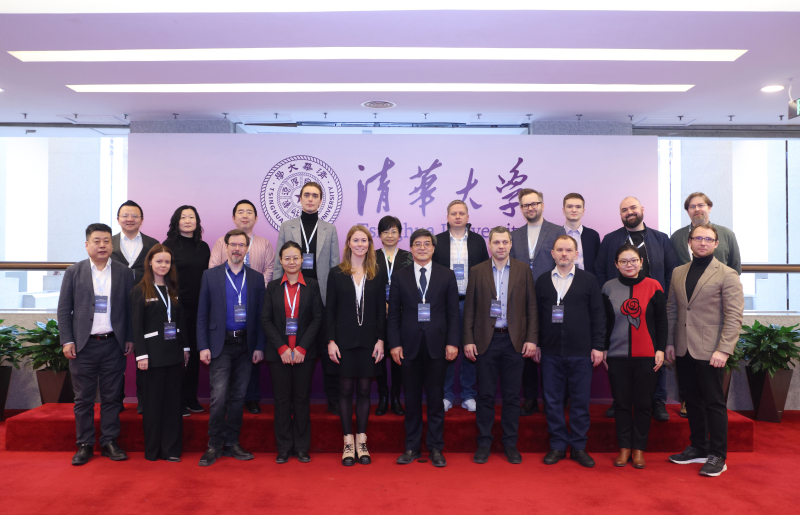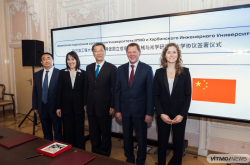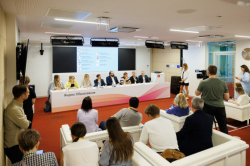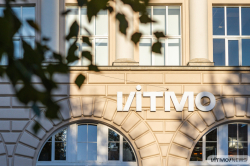The seminar was hosted at Tsinghua University, one of China’s educational leaders, which has been consistently ranked in the top 50 of major international rankings and is a member of the C9 League. Yandex and ITMO University, a key university within the Priority 2030 program and a leader in training specialists in AI, were among the Russian co-organizers.
Several well-known Russian AI experts shared their knowledge at the seminar. Among them were Alexander Krainov, the director for development of artificial intelligence technologies at Yandex; Aleksei Shpilman, the head of AI Development Programs at Gazprom Neft; Andrei Neznamov, the managing director at Sberbank’s AI Regulation Center; Alexander Boukhanovsky, the head of ITMO’s National Center for Cognitive Research and Research Center “Strong AI in Industry;” Evgeny Burnaev, the director of Skoltech’s Applied AI Center; Ivan Arzhantsev, the dean of the Faculty of Computer Science at the Higher School of Economics, and many others.
The primary goal of the seminar, according to Daria Kozlova, ITMO’s First Vice Rector, the head of the university’s Development Strategy, and the education director at Yandex, was not only to exchange experiences with Chinese partners but also to find cooperative solutions that could assist both parties in achieving high-quality education under completely new circumstances.
“Recent technological advancements have made it impossible for us and our colleagues from China to ignore the need for changes to the educational system. This applies to both AI expert training and the introduction of new educational approaches. What should we teach our students in the era of the rapid growth of language models and generative networks? What should a truly in-demand and effective AI program be like? And how, in general, can we employ AI to improve our education? ITMO has long been pursuing personalized education; we help our students shape their learning tracks and see great potential for AI in this sector,” noted Daria Kozlova.
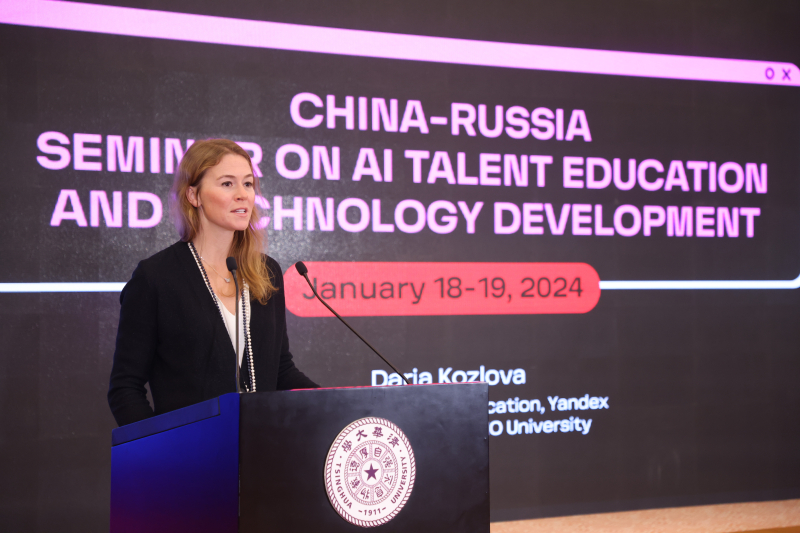
Daria Kozlova. Photo by Tsinghua University
AI in education
Theses produced by ChatGPT are by no means the only application of AI in education. As noted by Daria Kozlova, AI can also be used to improve mass education by adapting educational programs to each student's needs.
AI tools can be used to collect data on a student's performance, educational experiences, and knowledge gaps to create a learning path that meets their needs and so improves learning efficiency. ITMO University has been supporting individualized education for several years; it also promotes learning analytics, which is used to make different management choices, including those aimed at improving educational programs.
Read also:
Evidence-Based Education: How Data Improves Learning & Teaching
Moreover, AI adds diversity and makes learning engaging. Current technologies may generate a variety of activities, such as creating a problem based on Barbie or Game of Thrones to excite even those students who were previously bored in the classroom.
Finally, one of its primary goals is to take over routine tasks and analyze processes. As shared by experts from Tsinghua University, more than half of the university’s lecturers use AI to prepare and deliver lessons; some even apply industrial core models for their disciplines. As mentioned, this illustrates how AI advances already provide variability and automate the development of curriculum materials.
“It’s inspiring to learn how our colleagues have blended generative AI into teaching. They develop essential models for a variety of subjects and invite professors to finalize and customize them. This allows instructors to create high-quality digital materials and evaluation tools, as well as properly evaluate how students use AI. We discovered during the seminar that more than half of their lecturers apply these technologies – and this is the next generation of the digitalization of education,” said Alexander Boukhanovsky, the head of ITMO’s School of Translational Information Technologies, the director of the National Center for Cognitive Research and Research Center “Strong AI in Industry,” who was a moderator at one of the seminar’s sessions.
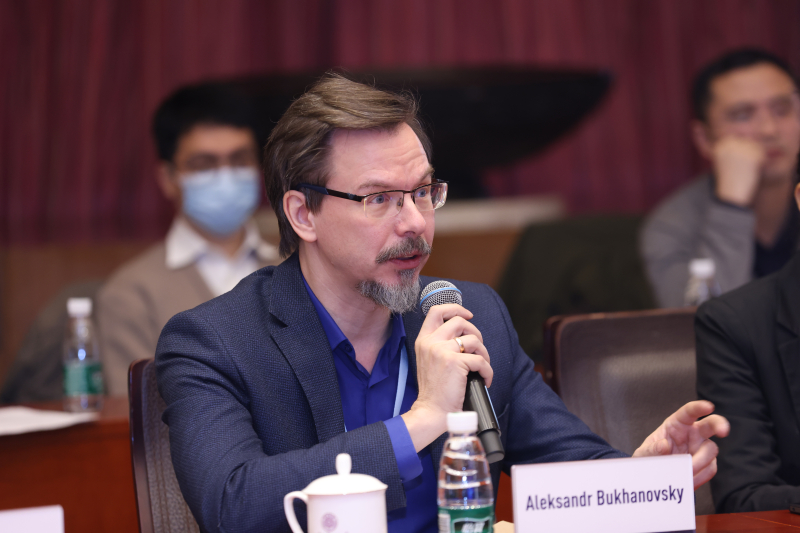
Alexander Boukhanovsky. Photo by Tsinghua University
Training AI talents
At the end of last year, the first ranking that made it possible to assess the quality of training of AI specialists was released in Russia. The ranking was compiled by the AI Alliance using the methodology recognized by the Russian Ministry of Science and Higher Education. The AI Alliance ranked universities based on a variety of criteria, including graduates’ employability, quality of educational programs, initiatives for school students, and academic recognition.
ITMO has topped the list on par with the Moscow Institute of Physics and Technology (MIPT) and the Higher School of Economics. Several years ago, the university’s programs were among the first in AI to be certified by the AI Alliance. At the seminar, the head and employees of the Research Center “Strong AI in Industry” shared how ITMO trains AI specialists and which research topics they work on.
Alexander Boukhanovsky believes that research is the main driver for AI programs. ITMO is a research university that has been conducting studies on data analysis, decision support, and complex system modeling for many years. However, at the heart of AI in the university are the National Center for Cognitive Research and Research Center “Strong AI in Industry,” which develop generative AI-based solutions for enterprises and designs and implements AI for various purposes, respectively.
All in all, ITMO offers 14 programs in the field of AI, which, as noted by Alexander Boukhanovsky, are annually reviewed to ensure their relevance and demand. In particular, the university is presently trying to increase its focus on fundamental AI models and generative algorithms, as well as introduce greater use of AI in different subject areas to promote its novel efficient applications.
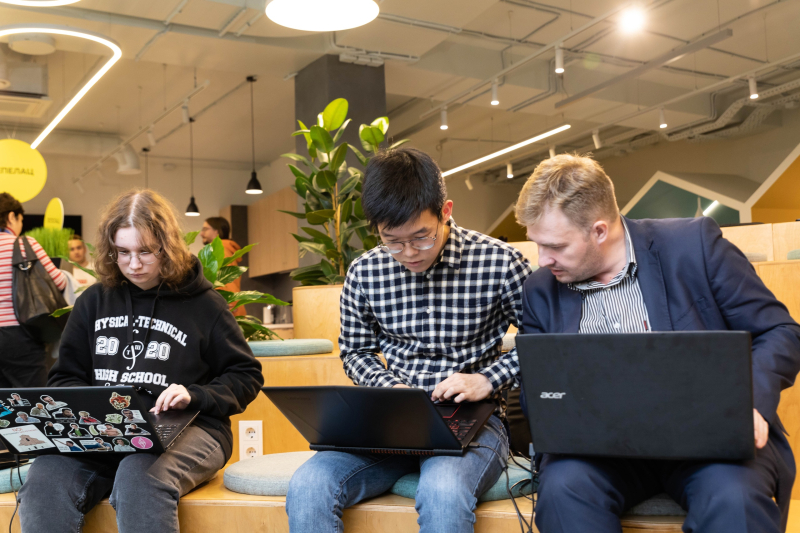
ITMO students. Credit: vk.com/aitalenthub
The further, the more
The university intends to strengthen its cooperation with Chinese universities.
“We’re going to continue and extend our relations with our partners, including the Beijing Academy of Artificial Intelligence and Peking University, in all possible areas. These may include joint grant initiatives, exchange programs, an open-source ecosystem, and even hosting YSC 2024, the annual international conference for young researchers that was launched by ITMO in 2012,” shared Alexander Boukhanovsky.
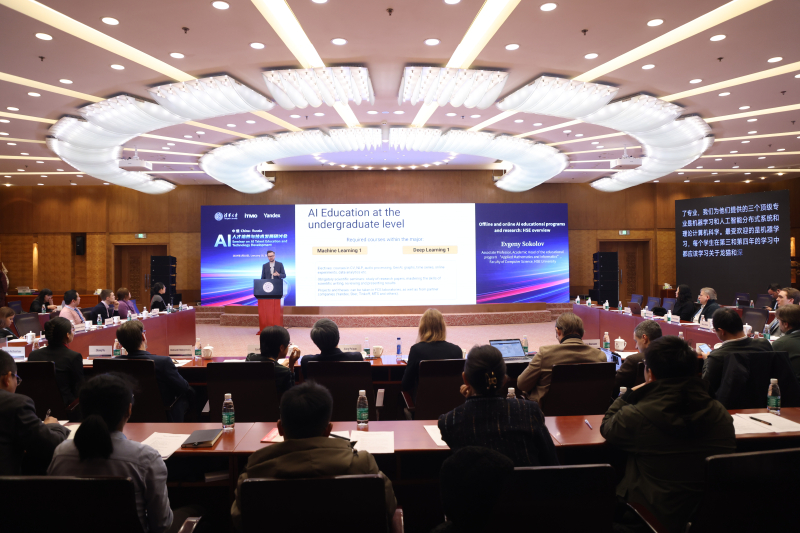
The participants of the first China-Russia seminar on training AI talents. Photo by Tsinghua University
In January, the university’s representatives also visited Tsinghua University’s Online Education Center, which has created and now maintains the online platform XuetangX (128 million students); as well as the School of Data Science at the Big Data Research Center, where they discussed plans for joint research and short-term programs. Next month, ITMO will welcome a group of PhD students from Tsinghua University.
ITMO has been collaborating with Chinese universities for more than 30 years. As of now, the university partners with 22 institutions in China. Among the existing initiatives are the training of ICPC-level programmers, as well as research and educational programs in robotics and optics. Over 1,200 students study in joint programs with Chinese universities.
